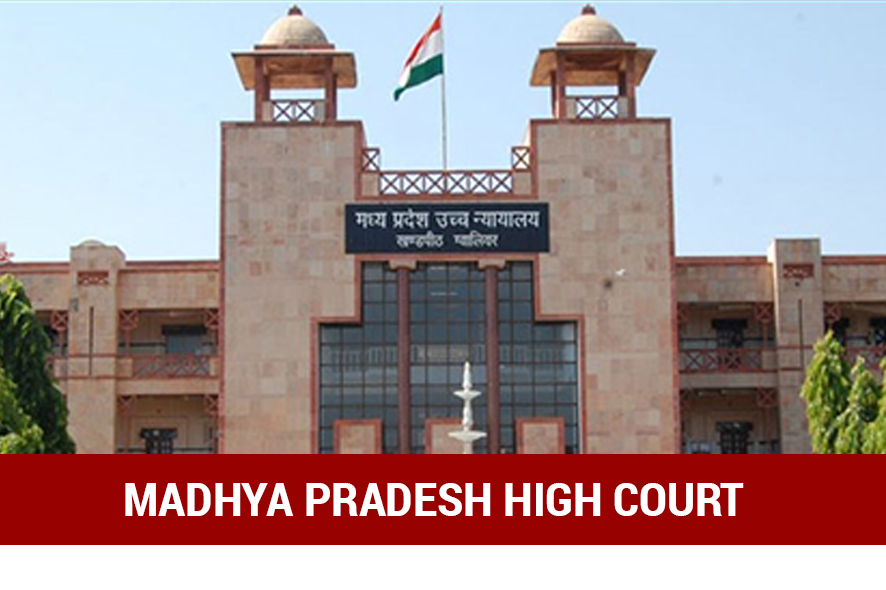Madhya Pradesh High Court | While deciding a petition filed under S. 482 CrPC for quashing of charge-sheet and criminal proceedings under S. 376(2)(n) of IPC, Deepak Kumar Agarwal, J., held that no case can be made out against the petitioner and the prosecution of the petitioner was nothing but abuse of process of law.
In the instant matter, the complainant/prosecutrix lodged a written complaint at Police Station that the accused promised to marry the prosecutrix and they had physical relationship as husband and wife, but the accused went to Jodhpur and solemnized marriage with another girl. The police filed a charge sheet after completion of investigation. The petitioner filed the present petition under S. 482 of CrPC challenging the charge-sheet and criminal proceedings for offences punishable under S. 376(2)(n) of IPC pending before the Court of Additional Sessions Judge, Gwalior.
The petitioner contended that the FIR has been lodged with mala fide intention to take undue benefit by the complainant. The petitioner submitted that the consent of the complainant was not obtained by misrepresentation, and she made physical relationship with the petitioner on her own consent and free will.
Rebutting the contentions of the petitioners, the respondent stated that it cannot be said that the prosecutrix’s consent was not obtained by misconception of fact, when she was made believed that the offender is ready to make good of promise made by the offender for a long period of time.
The Court relied on Deepak Gulati v. State of Haryana, (2013) 7 SCC 675, where it was held that “There is a distinction between the mere breach of a promise, and not fulfilling a false promise. Thus, the court must examine whether there was made, at an early stage a false promise of marriage by the accused; and whether the consent involved was given after wholly, understanding the nature and consequences of sexual indulgence. There may be a case where the prosecutrix agrees to have sexual intercourse on account of her love and passion for the accused, and not solely on account of misrepresentation made to her by the accused, or where an accused on account of circumstances which he could not have foreseen, or which were beyond his control, was unable to marry her, despite having every intention to do so.”, and Uday v. State of Karnataka, (2003) 4 SCC 46, where it was observed that the prosecutrix knew since they belonged to different castes, marriage was not possible, moreover, she herself told the same to the petitioner when he proposed to her the first time. The Court stated that despite knowing about their circumstances, “she did not resist the overtures of the appellant, and in fact succumbed to them. She thus freely exercised a choice between resistance and assent.” The Court opined that the prosecutrix freely, voluntarily and consciously consented to having sexual intercourse with the appellant and her consent was not in consequence of any misconception of fact.
The Court observed that there is a difference between “mere breach of promise” and “giving a false promise to marry” and “Only a false promise to marry made with an intention to deceive a woman would vitiate the woman’s consent being obtained under misconception of fact, but mere breach of promise cannot be said to be a false promise.”
The Court observed that both the parties were in a relationship for near about 5 years, and it is more than sufficient time for a prudent woman to realize as to whether the promise of marriage is “false from its very inception or there is a possibility of breach of promise.” The fact that she continued the relationship with the petitioner even after the petitioner was not acceding to her request for marriage makes it clear that it is a case of breach of promise.
Stating that the prosecution of the petitioner was nothing but abuse of process of law, the Court quashed the charge-sheet as well as consequential criminal proceedings pending before Additional Sessions Judge.
[Mayank Tiwari v. State of M.P., 2023 SCC OnLine MP 673, decided on 02-03-2023]
*Judgment by Justice Deepak Kumar Agarwal
Advocates who appeared in this case :
Mr. Rakesh Kumar Dubey, Counsel for the Petitioner;
Mr. G.P. Chaurasiya (Public Prosecutor), Counsel for the Respondent No. 1/State;
Mr. Shyam Kishore Mishra, Counsel for the Respondent No. 2.



